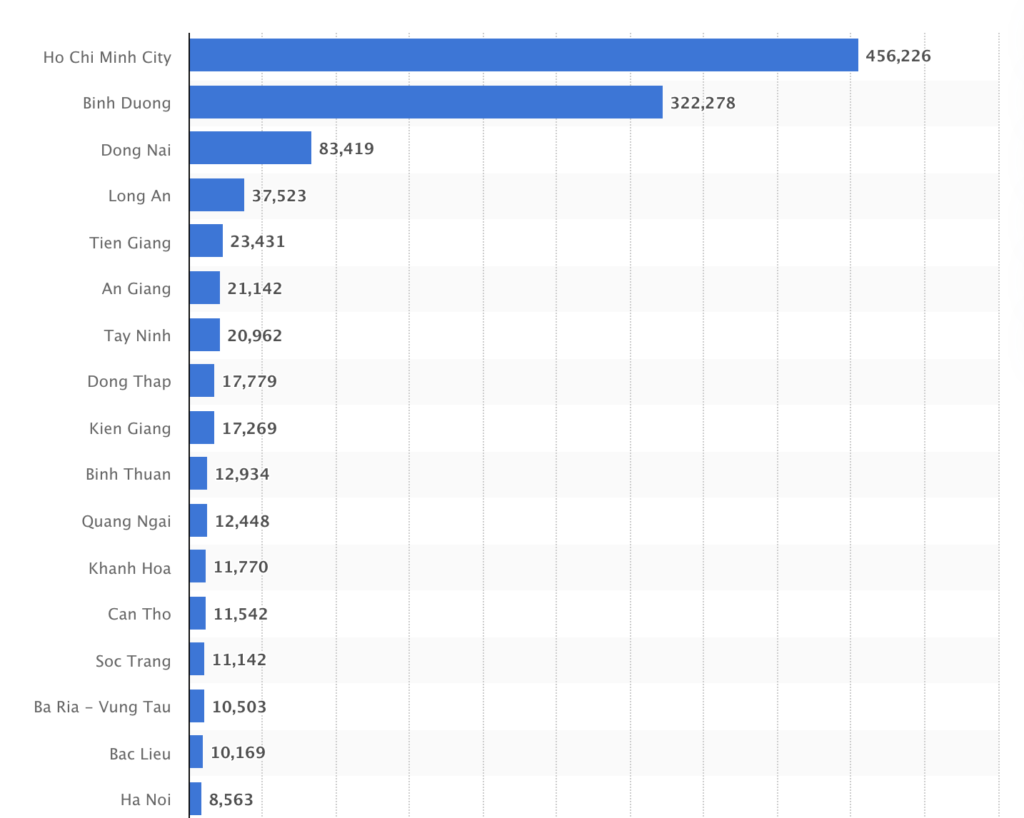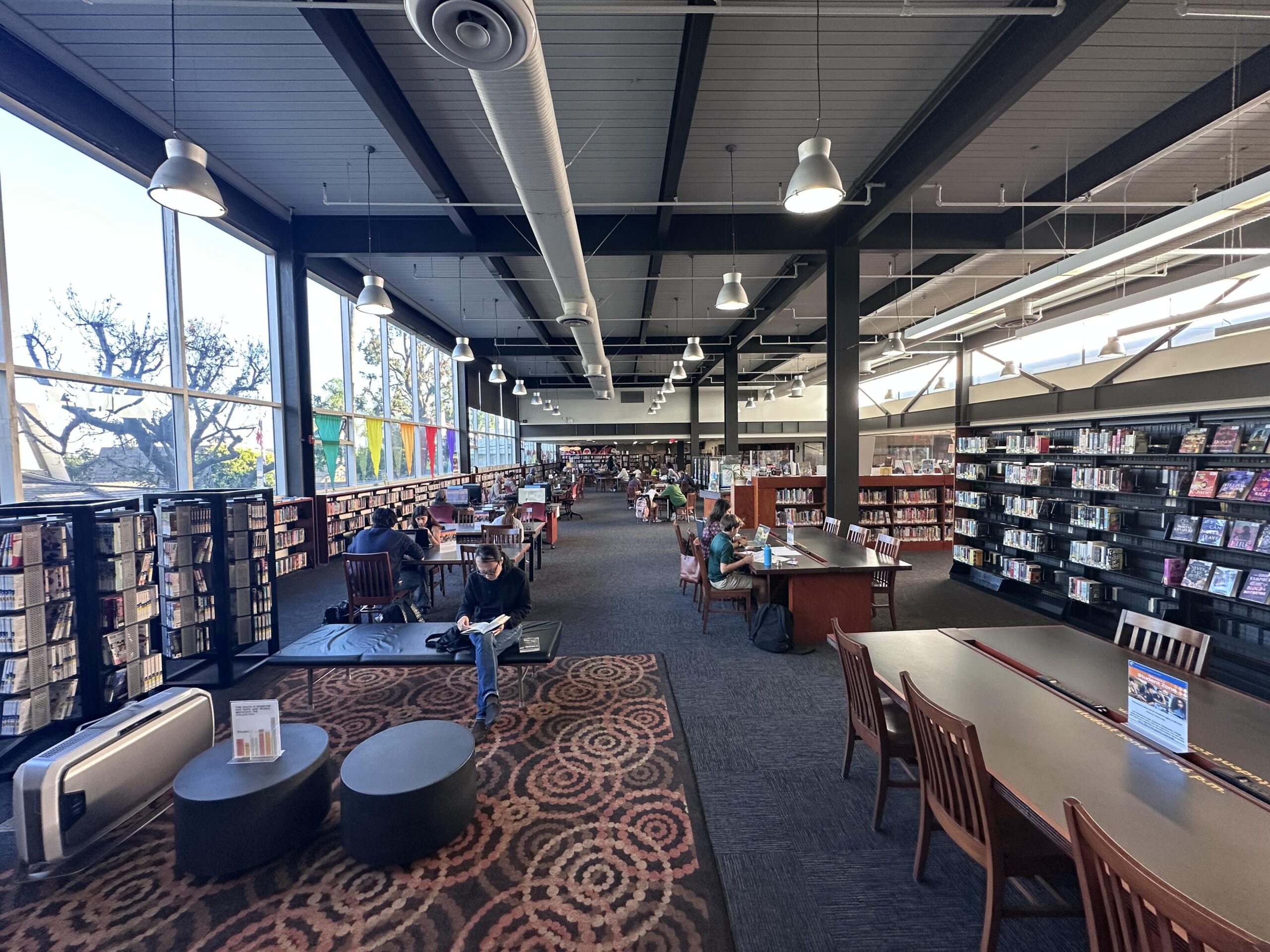(HO CHI MINH CITY, Vietnam) — Percival Maza Flores moved to Vietnam from the Philippines 13 years ago. He’s studying to fulfill a lifelong dream of becoming a Catholic priest, but he also has a family to support back home (his father, once the main provider, died in 2000).
In order to make ends meet, he’s pursued a career familiar to hundreds living in Ho Chi Minh City, Vietnam: he’s a teacher, and he specializes in teaching English at a center named VUS and at Trương Vĩnh Ký Private School.
“I’m the one who actually became the breadwinner of the family, so I need to go out from the seminary in order for me to help my whole family,” Flores said.
Juggling a full-time job and a side passion during the pandemic has become a common narrative for many educators in Ho Chi Minh City, where reoccurring lockdowns have become routine. The Click interviewed half a dozen instructors, both Vietnamese and expats, who teach at multiple schools for children of all ages and subjects to get a sense of how they’ve fared during this crisis. The recurring theme has been that educators have made the most of their time at home despite the challenges of online teaching.

Regional breakdown of cumulative confirmed coronavirus COVID-19 cases in Vietnam as of November 23, 2021 [Credit: www.statista.com]
Adapting to Teaching Online During a Global Pandemic
In 2020, Vietnam was ranked the second best country in the world for responding to COVID-19 crisis (behind New Zealand). In 2021, however, Vietnam’s resilience score dropped due to the outbreak of new strains, and the country fell out of the top 10 ranking.
Some of the biggest pandemic challenges have happened in Ho Chi Minh City, which had the most cases in the country. An ongoing problem has been the opening and closing of schools — as of press time, some schools here have started to open, while others are set to re-open at in early 2022.
Zoran Rakovic is an English teacher at VUS who moved to Vietnam from Melbourne, Australia. Rakovic told The Click that although online course work has been demanding, he’s learned to accept the challenge at hand.
“I don’t really have any choice, so I just have to accept it,” Rakovic said. “Basically, it’s decided for us and we have to comply and make the most of it. It’s not ideal.”
Rakovic noted that between teaching, preparing lesson plans, and taking care of his two children, he’s busy working 100-hour weeks. It’s been tough, yet he’s been able to adapt.
“It’s not a problem for me teaching online,” he said. “I don’t hate it. I know some teachers really hate teaching online. But I’ve adapted to it.”
The beginning of this school year looked quite different for students. In Vietnam, it is tradition for schools to host open ceremonies on the fifth day of September. It is to commemorate a tradition that goes back to 1945, when former President Hồ Chí Minh of the then three-day-old Democratic Republic of Vietnam sent a letter to Vietnamese students to celebrate the independent Vietnam’s first school year. Because of lockdowns, though, 1.3 million students returned to school without a ceremony on September 5. Many students then had to rely on multiple weeks’ worth of recorded lessons without the presence of a teacher.
That’s for students who have had the proper technology to participate. Many others lacked computers and a reliable internet source. Although places like the Hope Foundation donated thousands of computers to help out, tens of thousands of kids have been unable to attend online classes. As a result, the news outlet Saigoneer noted in an article that the lack of resources and class time in recent months has put a tremendous mental strain on students and parents, as well as teachers.
Getting By, But Also Getting Better
The economic hardships brought on by the pandemic have also forced teachers to consider other employment. Quốc Thảo Đoàn, an English teacher originally from Tiền Giang province in Vietnam, shared how alongside teaching he’s also been working two other jobs: He works as an academic executive for Tổ Ong Vàng Primary School System, and he’s been buying and selling different goods such as strawberries.
During the lockdown period, his income dropped by 90 percent. Đoàn said it was “so hard to keep everything together with that little amount of money.”
Despite pay cuts and limited preparation before the online pivot, many teachers said they’ve used this time to become better at their craft. One of these teachers is Dmitry Oleynik, an English, science, and coding instructor who is originally from Moscow, Russia, and also a parent of two young children. “The pandemic really shaped me and motivated me a lot,” he said. “Every second I have now I study what teachers are doing online, what they offer, and how the newest techniques of online teaching can be applied.”
A teacher’s job is to multitask. It’s not surprising to find teachers demonstrating their knack for keeping busy and making the most of their time as an extension of what they already do inside the classroom.
Trần Nguyễn Thuý Vy, an English teacher born in Ho Chi Minh City, shared how in addition to teaching English at VUS, she also works as a teaching assistant at The American School (TAS). Nevertheless, she still makes time to take online Coursera classes at night and attend teaching webinars in the morning.
She has also started a new chapter in her life: pursuing an M.Ed in TESOL through a transnational program by Edith Cowan University in Australia and Open University in Vietnam. On top of all of that, she said she would spend an additional one to two hours a day searching online shopping sites to provide food orders for her family of seven.
“I like myself to be busy,” she said in an interview. “I don’t want to have so much free time because I think it’s kind of lazy that we have so much free time like that, and I want to make use of all of my time.”
In fact, keeping busy has been common for all teachers who spoke with The Click.
While Flores is pursuing his dream of entering the priesthood alongside teaching all day and night, he’s also running an NFT business with his brother and cousin in the Philippines. Đoàn has kept busy in between his multiple jobs by watching YouTube videos to improve his skills in Photoshop. He is also taking online classes to increase his knowledge of the stock market.
Hương Vũ is another English teacher from Vietnam who works at VUS, as well as in Văn Lang University. She shared that she has spent more time than ever doing the things she enjoys the most, such as reading and painting. “I have more time for myself, which I didn’t have a chance to do back then,” she said. “I’m more home based. I like to be inside more. So this is a really precious time for me.”
Creating Wins and Going with the Flow
Teachers like Oleynik have not only kept themselves engaged at work but have also been able to create new wins for themselves. The wins include exercising daily, and spending more time with his family, such as eating breakfast, lunch, and dinner together at one table every day — a concept virtually unheard of for working parents.
Also, since he and his family spent a portion of their time in the city of Mũi Né during lockdown, he was able to revitalize what he called his “love and passion” that is kitesurfing. He also started a new career at Korea Global School teaching the subject he loves the most: science.
“I basically started the new career because it’s just the second year when I started to teach English and I already teach science, and I always loved science. So this is what I would say is like triple win. It’s not win win. It’s win win win.”
Schools have been shut down since early May 2021, and many are tentatively still not set to open until January 2022. In the face of this level of uncertainty, one thing is sure: teachers in Ho Chi Minh City have proven their resilience and made the most of their time while teaching online. It hasn’t always been easy for teachers, but as Rakovic said, “You have to go with the flow and do the best that you can.”

